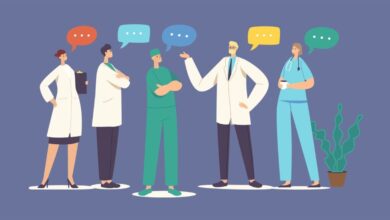With so much competition to get into medical school, many students find themselves taking a gap year- either by choice or by default from not getting accepted after their first round of applications. If you’re taking a gap year intentionally or unintentionally, be encouraged knowing you can be intentional about how you take your gap year. Also be aware that by doing so, you’re greatly improving not only your odds of acceptance into medical school in the future but also your own personal development as a person and future physician. And we think that’s a huge win-win.
1. Use Your Gap Year Before Medical School to Get More Experience in the Medical Field.
Okay, so this tip may not be such a secret, but there are some overlooked types of experience you can seek that will help set you apart as a candidate while making you a more well-rounded future physician in the process. What kind of experience should you focus on getting? Start with some combination of the following:
Clinical Experience:
This can be anything from working as a certified nurse’s assistant (CNA) or medical scribe to volunteering in a clinical research capacity or even taking gap year courses that include an externship component.
Research Experience:
A lot of students think they need to have experience conducting research in order to be a competitive applicant, but this doesn’t have to be the case. You can gain valuable research experience by working as a research assistant, participating in clinical trials, or even just helping to organize and administer research projects.
Teaching Experience:
Believe it or not, having teaching experience on your gap year application can be a huge asset. This is because medical schools are looking for students who are not only knowledgeable but also able to effectively communicate that knowledge to others. You can gain teaching experience by working as a tutor, teaching assistant, or even leading gap year courses yourself.
These experiences will not only make you a more competitive medical school applicant, but they’ll also help you decide if a career in medicine is the right path for you.
2. Use Your Gap Year Before Medical School to Explore Your Interests Outside of the Medical Field.
One of the best things about taking a gap year is that you have the opportunity to explore your interests outside of the medical field. This can be a great way to become a more well-rounded person, which is something medical schools are looking for in their applicants. And, who knows? You may find an interest that you want to pursue further, either in lieu of or in addition to a career in medicine. Some of the most innovative minds in medicine are people who creatively combine their passions for medical knowledge and nonmedical concepts into breakthrough developments for the field of medicine, or innovation in how care is delivered to patients!
3. Use Your Gap Year Before Medical School to Take the MCAT.
Okay, okay, we confess: this one is no secret, but we want to include it because it’s just so important (and an opportunity you should definitely take advantage of if your scores weren’t so hot the first time around)!
Consider hiring a tutor, using new and different study methods than you did the first time around, or changing up your routines and habits around studying.
This push to challenge yourself and to learn not only new material but new ways of learning that material will also correlate to an improved ability to pivot and adjust to the rigors of medical school and the myriad new challenges you’ll face as you learn how you learn best under the demands of medical school studies.
4. Use Your Gap Year Before Medical School to Gain Research Experience.
Many medical schools place high importance on research experience. If you don’t have any research experience, use your gap year to gain some. You can volunteer in a research lab, work as a research assistant, or even conduct your own research project. This experience will not only make you a more competitive applicant, but it will also help you develop important critical thinking and problem-solving skills.
5. Use Your Gap Year Before Medical School to Travel and Learn About Different Cultures and How They Approach Health Care.
One of the best ways to learn about different cultures is to travel. If you have the opportunity to travel during your gap year, take it! Not only will you learn about different cultures, but you’ll also gain a better understanding of how different countries approach health care. This knowledge will be valuable when you’re a medical student and working with patients. You may even notice some ways that healthcare delivery in other places could be or should be implemented into our healthcare ecosystems back home!
6. Use Your Gap Year Before Medical School to Volunteer in Underserved Communities and Gain a Better Understanding of Social Determinants of Health.
Volunteering in underserved communities is a great way to gain a better understanding of social determinants of health. These are factors that affect a person’s health, such as income, education level, and housing. By volunteering in an underserved community, you’ll learn more about these factors and how they can impact a person’s health.
7. Use Your Gap Year Before Medical School to Work on Your Communication Skills by Joining a Debate Team or Taking a Public Speaking Class.
Good communication skills are essential for any doctor. If you’re not confident in your ability to communicate, use your gap year to work on this skill. Join a debate team or take a public speaking class to help you become more comfortable communicating with others.
This is one avenue that may not occur to your average medical school applicant, and certainly not one that those students who matriculate straight into medical school will have time to pursue.
So by sharpening your communication skills and comfort level with public speaking, not only are you improving your attractiveness as a med school candidate, but you’re greatly helping your future self and future patients in the process!
8. Use Your Gap Year Before Medical School to Develop Important Life Skills, Such as Time Management and Financial Literacy.
Medical school is a demanding environment, and it’s important to have strong life skills to be successful. Use your gap year to develop skills such as time management and financial literacy. These skills will not only help you in medical school, but they’ll also be valuable in your future career as a doctor.
Not to sound too much like an overbearing parent here, but just trust me: your future self will be so glad you took the time to master some adulting skills before you got swept up in the demands and responsibilities of med school and post-med-school life as a doctor.
9. Use Your Gap Year Before Medical School to Improve Your Writing Skills by Taking a Creative Writing Class or Starting a Blog.
Writing is an important skill for doctors. You’ll need to be able to write clear and concise medical reports, as well as patient education materials. If you’re not confident in your writing skills, use your gap year to improve them.
Take a creative writing class or start a blog to help you hone your writing skills. Don’t want to maintain your own blog, but like the idea of being a blog writer to improve your writing and gain experience? Consider being a guest author on blogs like this one or any of the many great pre-med blogs out there. By doing something like blogging, you’ll be improving yourself and helping fellow students by sharing your experience and unique perspective. Plus, giving back via sharing your hard-earned wisdom just feels great.
10. Use Your Gap Year to Become More Physically Fit by Joining a Sports Team or Working Out Regularly.
How does this help you prepare for medical school?
By focusing on getting physically fit or joining a team, you are putting great support systems in place for yourself during medical school. It’s easier to stay healthy once you have a good physical fitness routine established. And it’s way easier to establish one before you enter the rigors of medical school than trying to do so on the fly.
Similarly, take advantage of the time to make connections and find friends and social support by joining teams before you start med school so you have those relationships in place as you begin.



